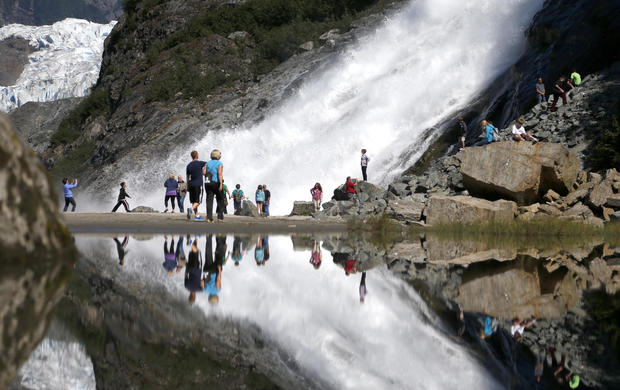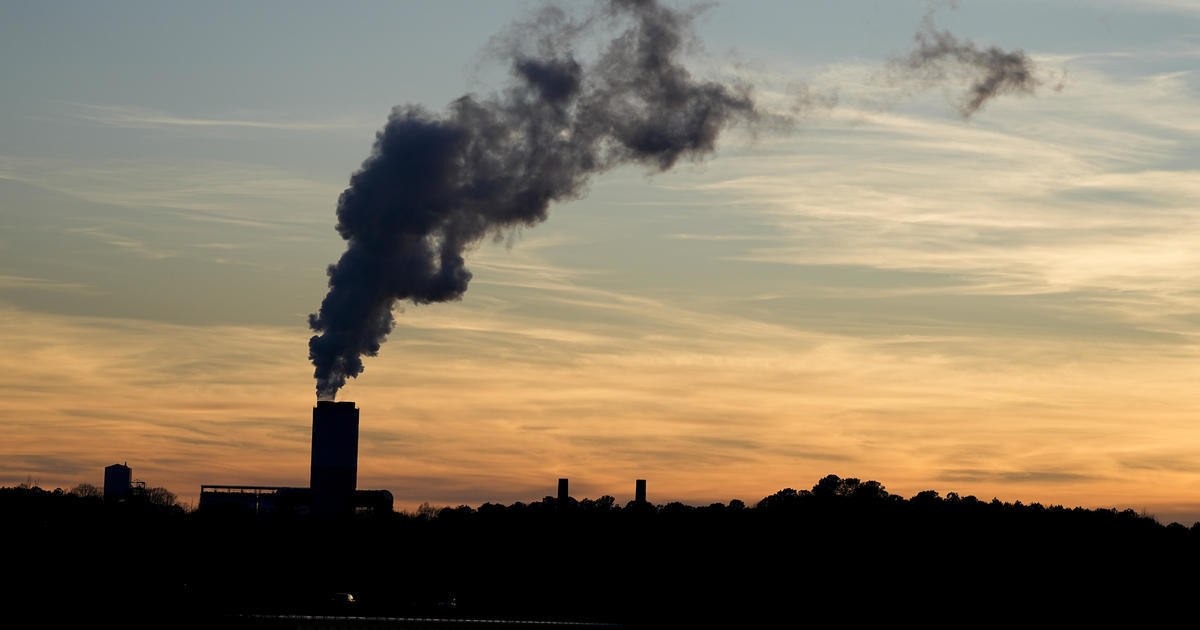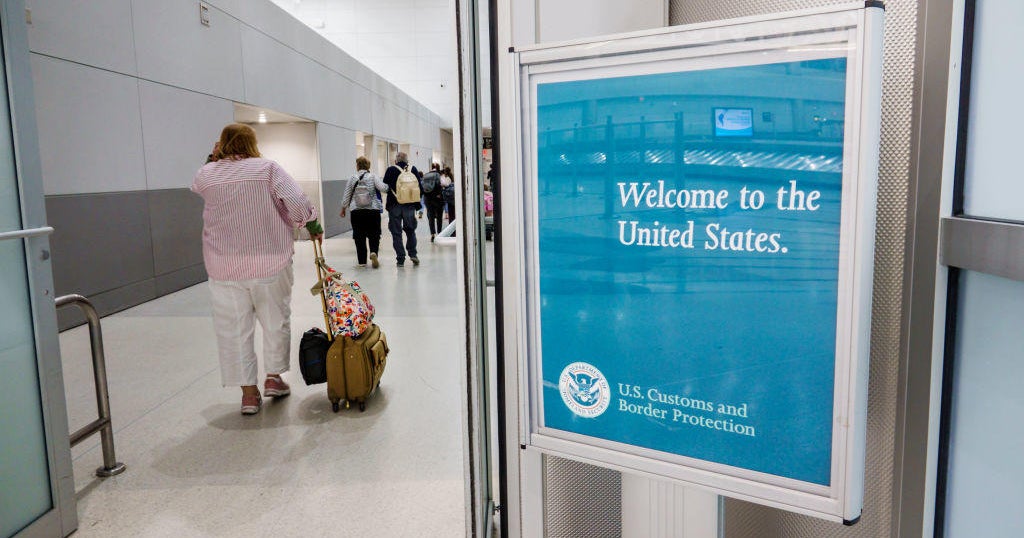Trump administration is stripping protections from Tongass National Forest, called "America's last climate sanctuary"
The Trump administration announced plans to lift restrictions on logging and building roads in a pristine rainforest in Alaska that provides habitat for wolves, bears and salmon. Conservation groups vowed to fight the decision on the Tongass National Forest.
"While tropical rainforests are the lungs of the planet, the Tongass is the lungs of North America," Dominick DellaSala, chief scientist with the Earth Island Institute's Wild Heritage project told The Washington Post. "It's America's last climate sanctuary."
In a notice released Wednesday, the U.S. Department of Agriculture said it has decided to exempt the Tongass National Forest, the country's largest national forest, from the so-called roadless rule, protections that ban road construction and timber harvests with limited exceptions. It applies to nearly one-quarter of all U.S. Forest Service lands.
The rule, dating to 2001, has long been a focus of litigation.
Alaska in 2018, under then-Governor Bill Walker, asked the federal government to consider the exemption, a decision supported by current Republican Governor Mike Dunleavy. Members of Alaska's congressional delegation also have pushed for the exemption.
About 9.4 million of Tongass' 16.7 million acres are considered roadless areas, according to the Forest Service, which falls under the USDA. That number differs slightly from the 9.2 million acres the agency cited in its draft environmental review last fall. The majority of Tongass is in a natural condition, and the forest is one of the largest, relatively intact temperate rainforests in the world, the agency said.
Many of the roadless areas are wildlife habitats, ecosystems and natural areas like old-growth temperate rainforests, ice fields and glaciers, and islands facing the open Pacific Ocean "that exist nowhere else in the National Forest system," according to the Forest Service.
The USDA said it concluded that a policy change for Tongass "can be made without major adverse impacts to the recreation, tourism, and fishing industries, while providing benefits to the timber and mining industries, increasing opportunities for community infrastructure, and eliminating unnecessary regulations."
In a separate statement, the USDA said the exemption itself doesn't authorize any specific work and that proposed projects still must comply with the forest's management plan and are subject to federal environmental review.
U.S. Senator Lisa Murkowski, an Alaska Republican, said on social media that a full exemption from the roadless rule is about access "to recreation, renewable energy and more while ensuring good stewardship of our lands and waters."
CBS affiliate KTVA reports Governor Dunleavy's office supported the decision, saying the decision was a "hard-won liberation from inflexible federal mandates."
But conservation groups criticized the decision as short-sighted and driven by politics.
"The decision to roll back the roadless rule on the Tongass was made in spite of, not in support of, southeast Alaskans and our communities," said Meredith Trainor, executive director of the Southeast Alaska Conservation Council. "In making this decision, the Trump administration and the sham rulemaking process they undertook in our region ignored economic realities, environmental imperatives, and worst of all, the will of the people who actually live here."
Randi Spivak, public lands director at the Center for Biological Diversity, referred to the forest's old-growth trees as giants.
"As sure as the sun rises in the east, with our allies, we will sue to keep these magnificent giants standing for centuries to come," Spivak said.
An official notice of the change at Tongass is expected to be published in the Federal Register on Thursday.
The Trump administration has reversed or rolled back more than 70 environmental rules and is in the process of reversing more than two dozen others, including climate policies and rules addressing clean air, water and wildlife, according to The New York Times.




